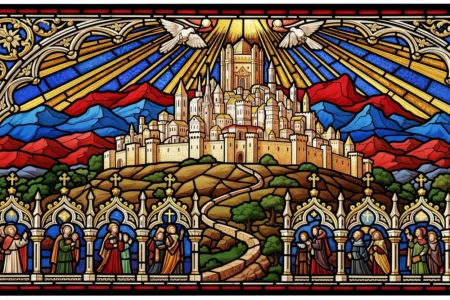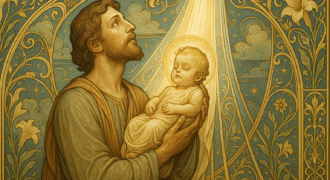The Unshakable Ones of Zion
A few years back when I first dug into Psalm 125, one detail stood out to me. The psalmist says, “Those who trust in the Lord are like Mount Zion, which cannot be moved but abides forever” (Psalm 125:1). And that made me pause. Why Mount Zion? Why that mountain in particular? After all, being unmoved is the basic job description of any mountain. And Zion is far from the tallest peak in the neighborhood. Mount of Olives and Mount Moriah stand higher. So why Zion? The answer is not about size but about covenant. Zion is the mountain of God’s presence, the place where He chose to put His name, the place where David brought the ark, the city God established as His dwelling. Zion is special because God made it special. Its stability isn’t inherent, it’s covenantal. The stability of God’s people does not come from their own strength, grit, or genius. It comes from being tethered to the covenant keeping God. Zion is unshaken because God is there. The people who trust in the Lord are unshaken because He is with them.
The psalm goes on, “As the mountains surround Jerusalem, so the Lord surrounds His people from this time forth and forever” (Psalm 125:2). Jerusalem sits tucked into a basin of hills, cradled and protected. That is the picture. God is not a celestial emergency response team who rushes in after disaster. He is the ever present defensive line. He surrounds His people on every side, always and forever. Psalm 139 puts it this way: “You hem me in behind and before, and lay Your hand upon me” (Psalm 139:5). This is where we falter. We affirm sovereignty on paper but often live as if God is absent in our daily troubles. We ask where He is in the long nights of financial strain, family conflict, church tension, or work headaches. The psalmist’s point is that He is right there, hemming you in, not merely in theory but in real time. He shows His greatness by displaying your weakness. He is glorified in providing when you cannot provide for yourself.
But this stability does not mean an absence of trouble. The psalm says, “For the scepter of wickedness shall not rest upon the land of the righteous, so that the righteous will not put forth their hands to do wrong” (Psalm 125:3). That means it will visit, but it will not stay. Sometimes Babylon builds towers in the middle of Zion. Sometimes wicked rulers rule over righteous land for a season. But God governs even their reach. He sets the boundaries, and He keeps His people. So if you find yourself in a season where wickedness seems to be winning, Psalm 125 says it will not last. The rod of the wicked is temporary. The King’s rod is coming.
This psalm is not the anthem of the strong willed or the naturally steady. It is a war song for weary pilgrims. It was not sung at the summit but on the climb. Surrounded by enemies and uncertainty, the people of God lifted their voices in covenantal hope: “Do good, O Lord, to those who are good and to those who are upright in their hearts. But as for those who turn aside to their crooked ways, the Lord will lead them away with the doers of iniquity. Peace be upon Israel” (Psalm 125:4–5). Trust makes you unshakable. God surrounds you. Evil has an expiration date. Peace is your inheritance. And that is why Zion. Not because it is Everest, but because God chose it as His dwelling. And that is why the man who fears God stands unshaken. Not because he is iron willed, but because he belongs to the covenant keeping Lord. If you are in Christ, you are unshaken because He is unmoved. “Peace be upon Israel” (Psalm 125:5).











